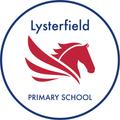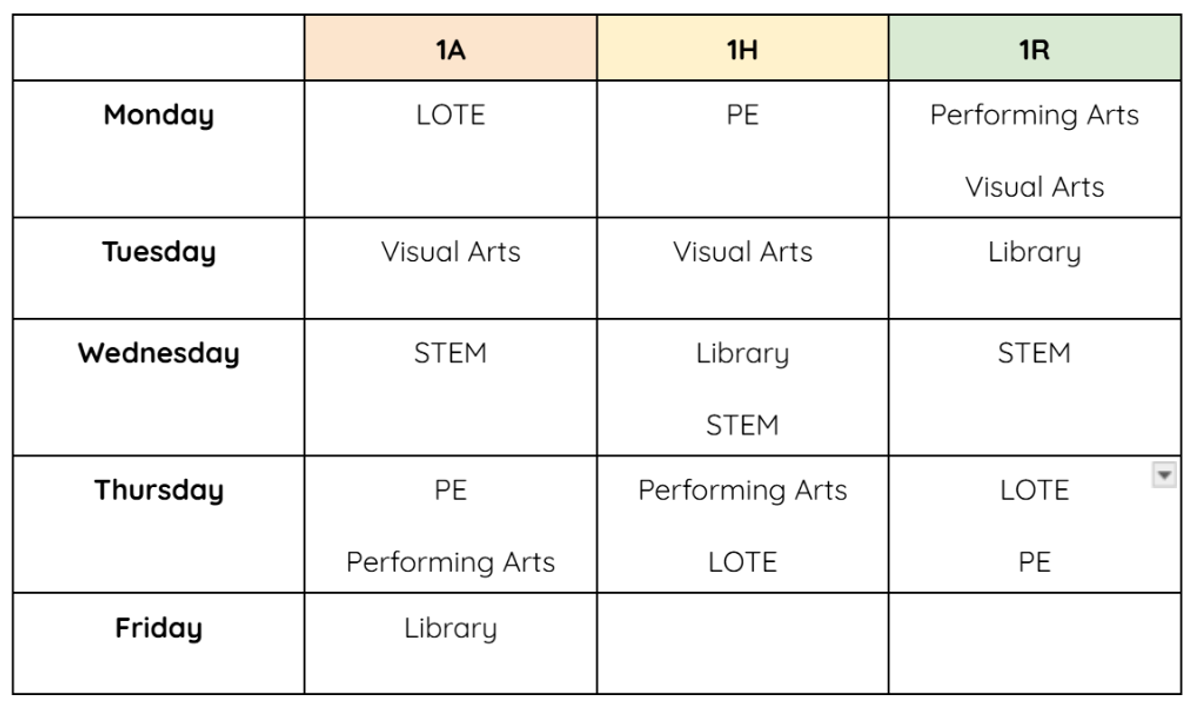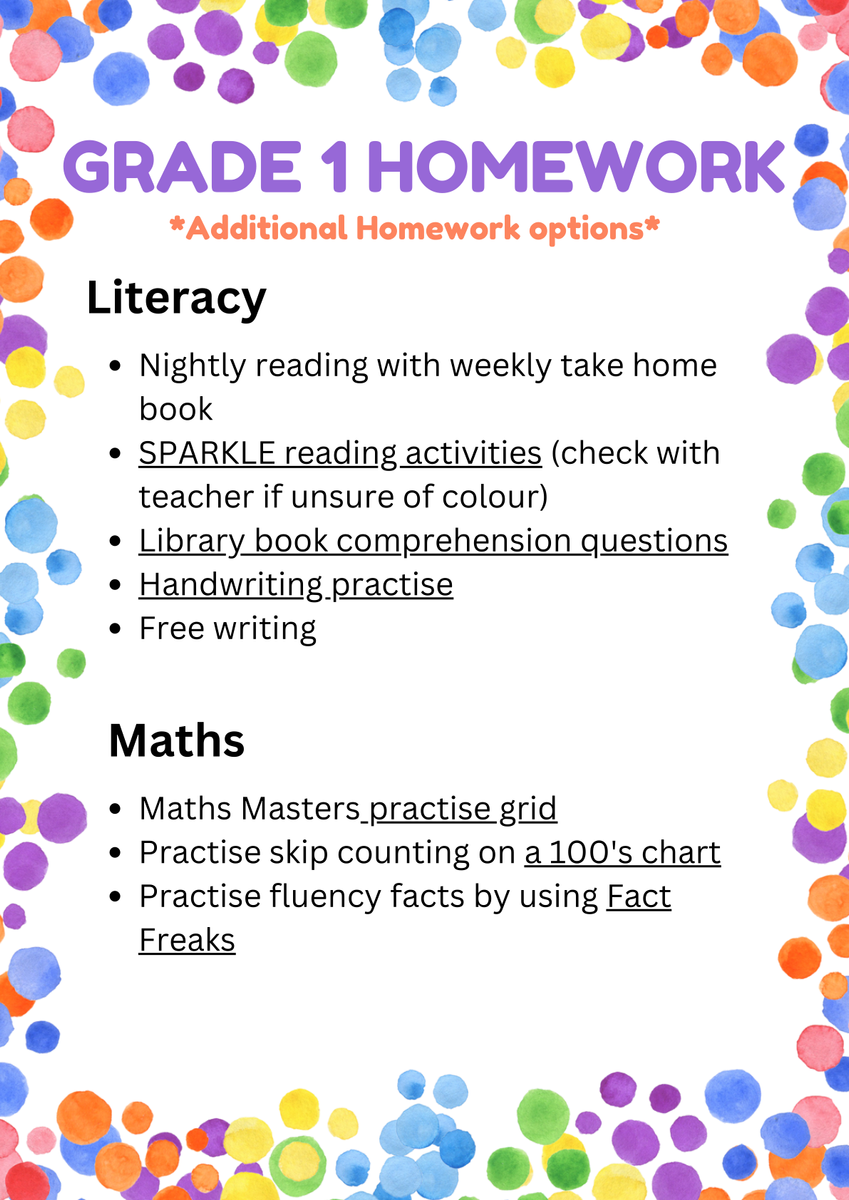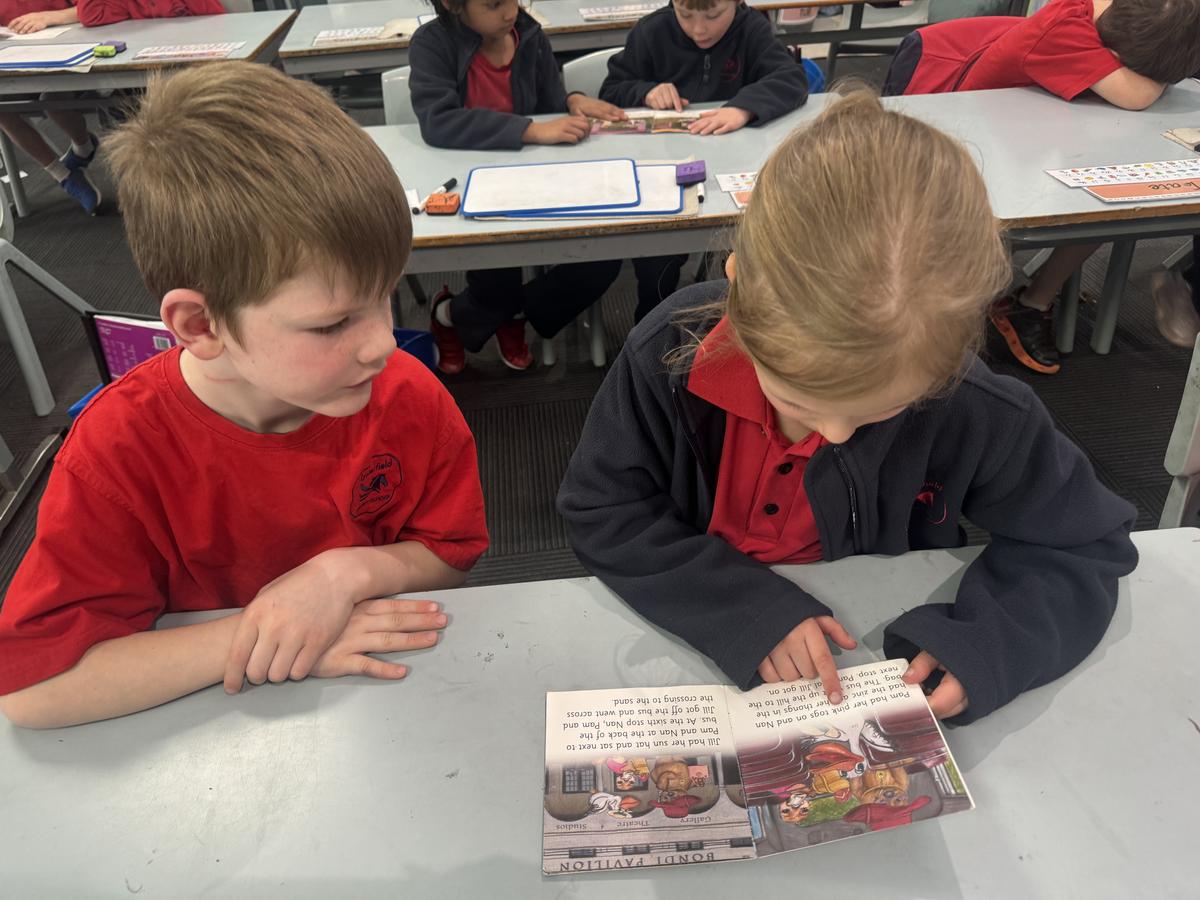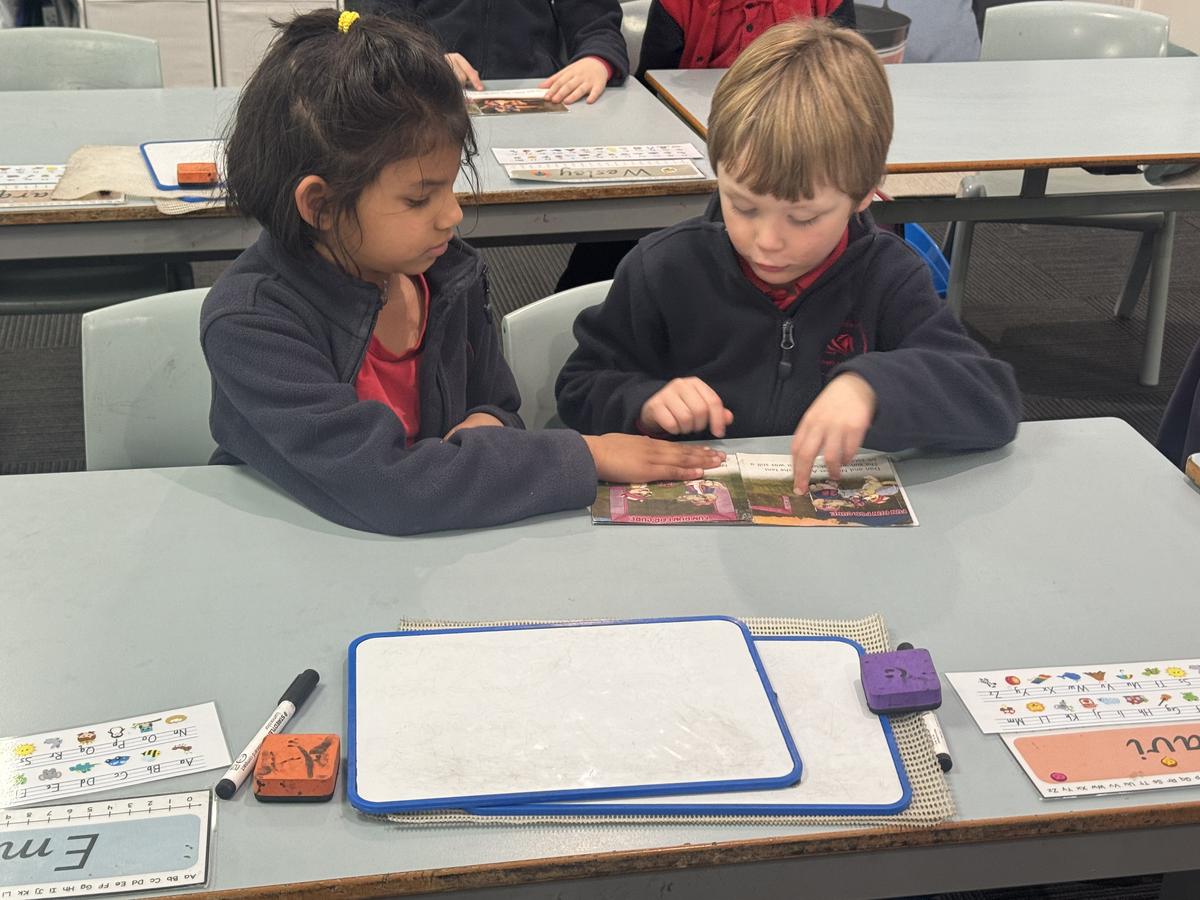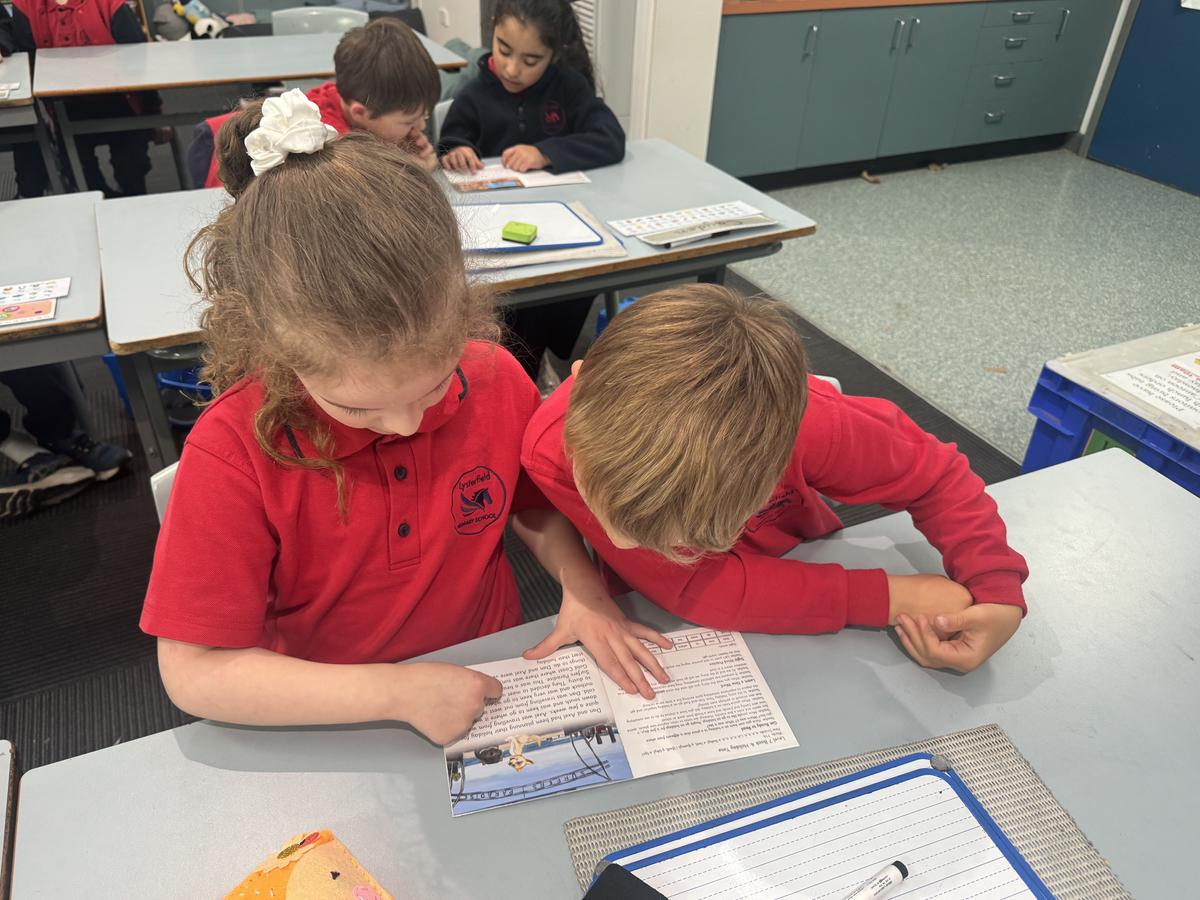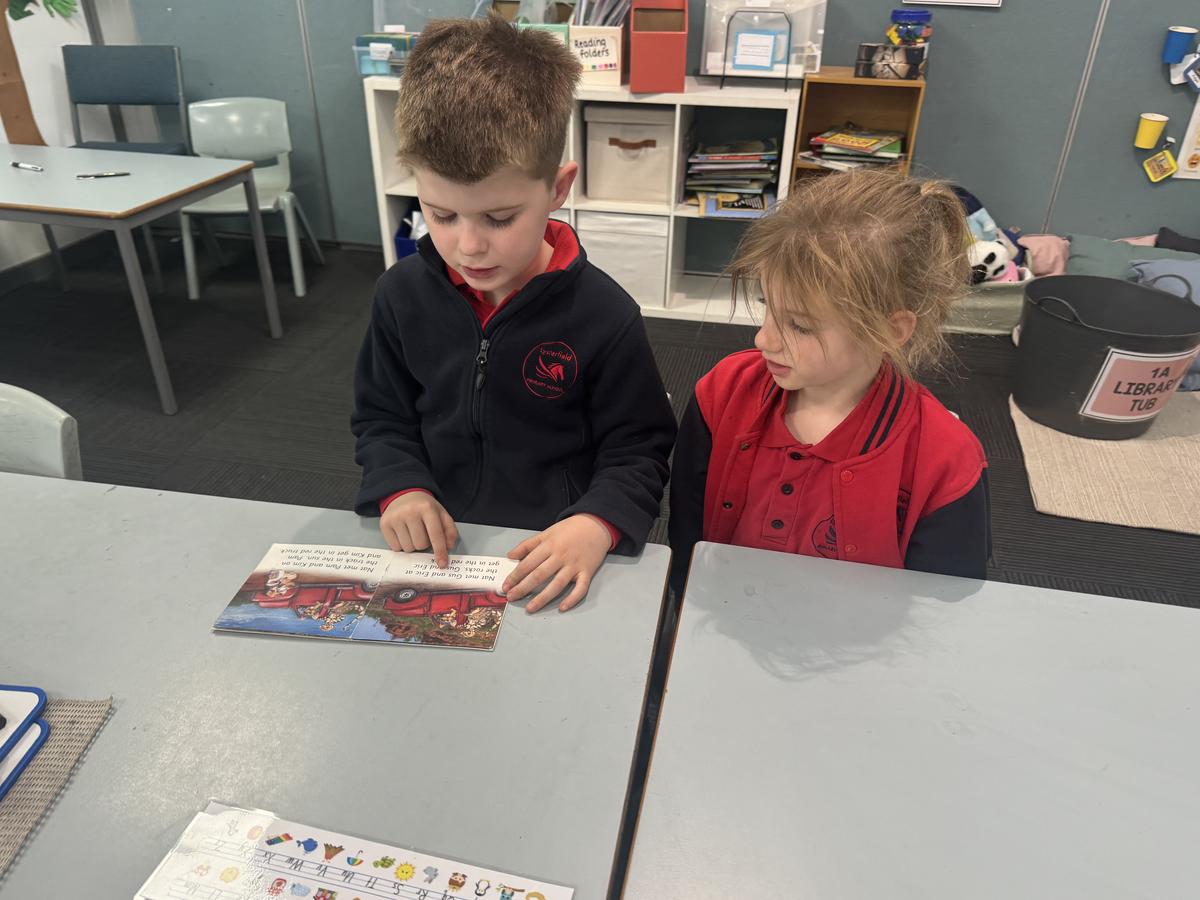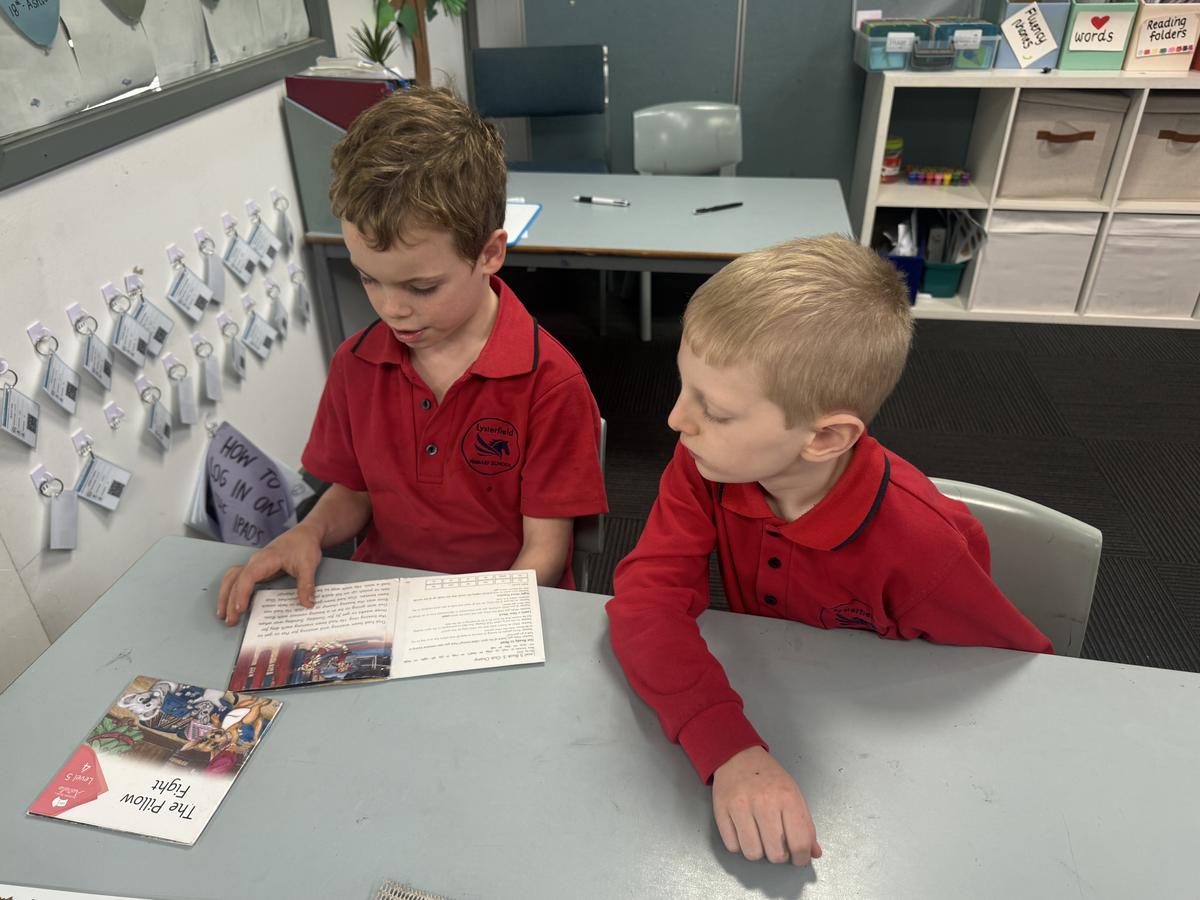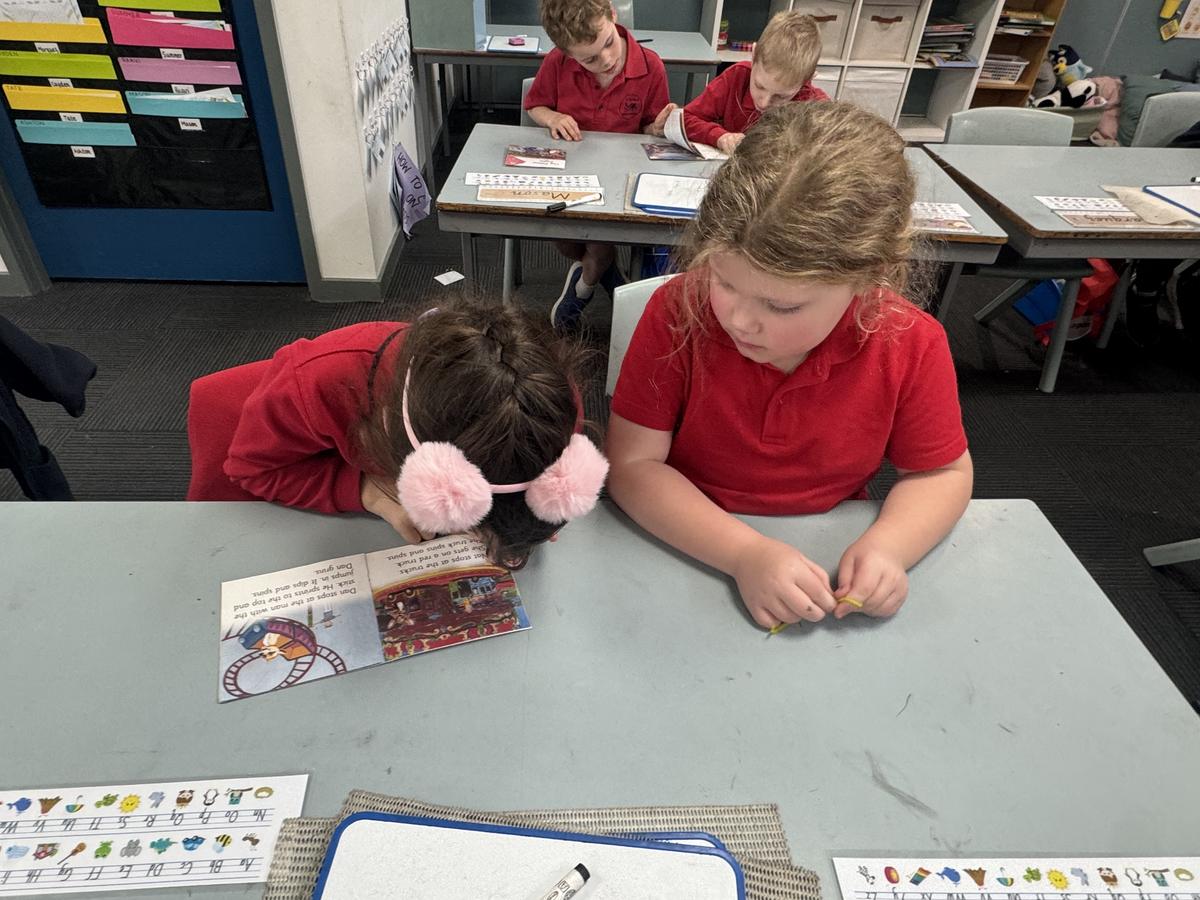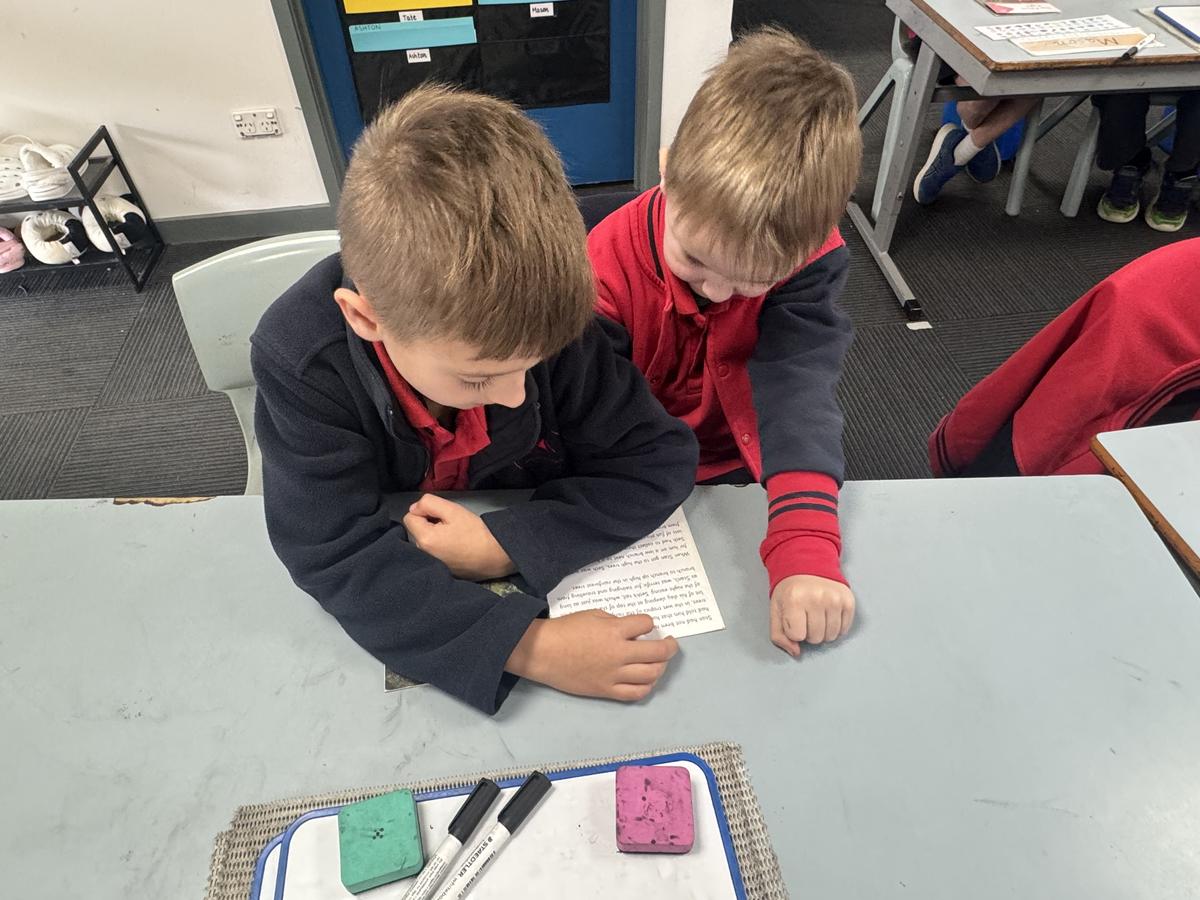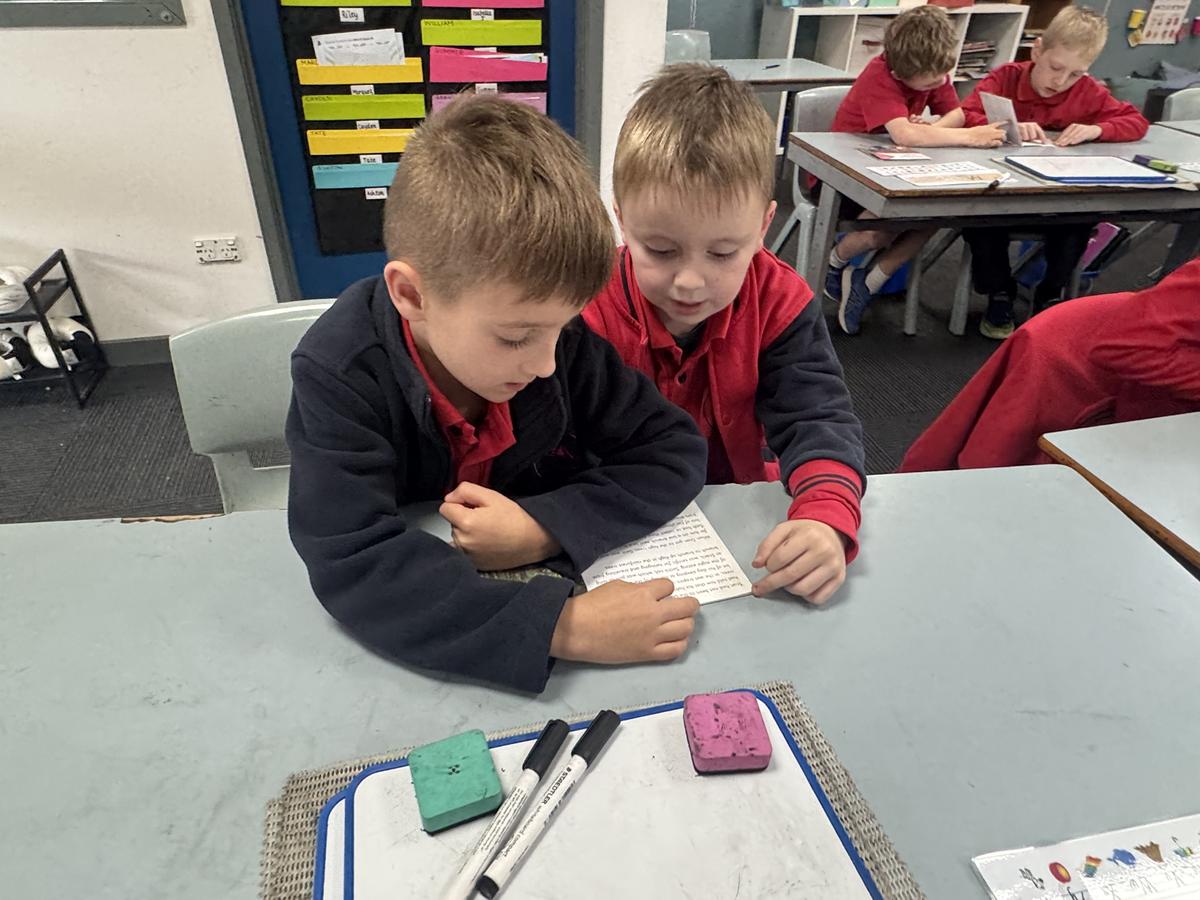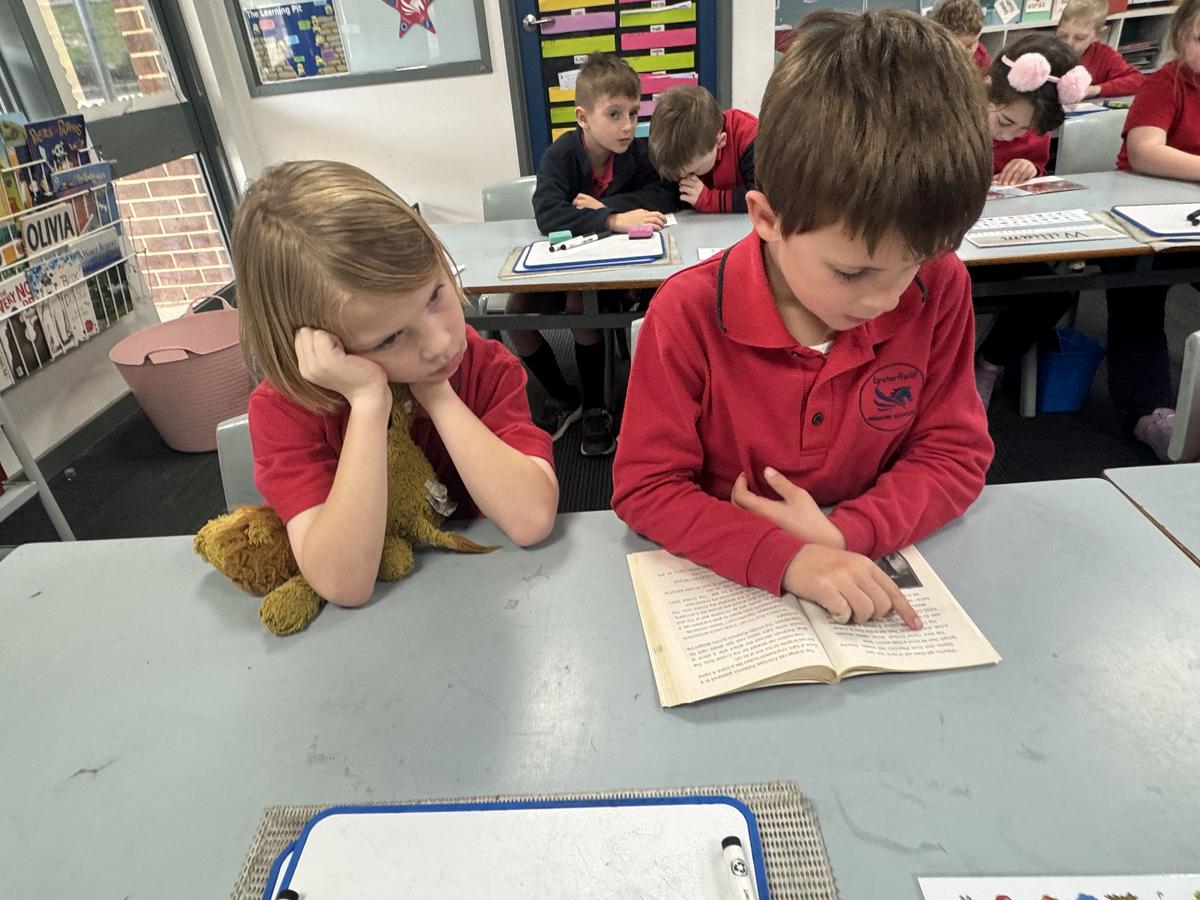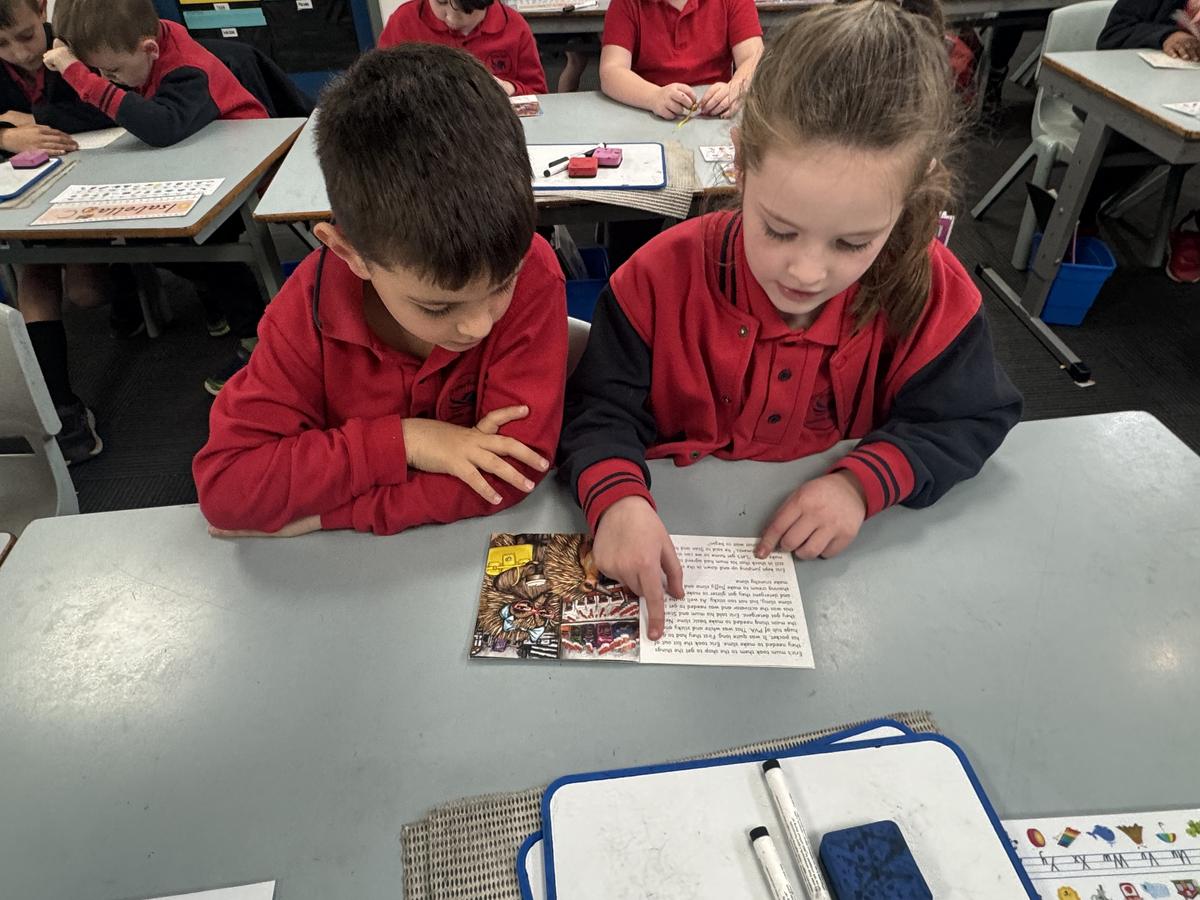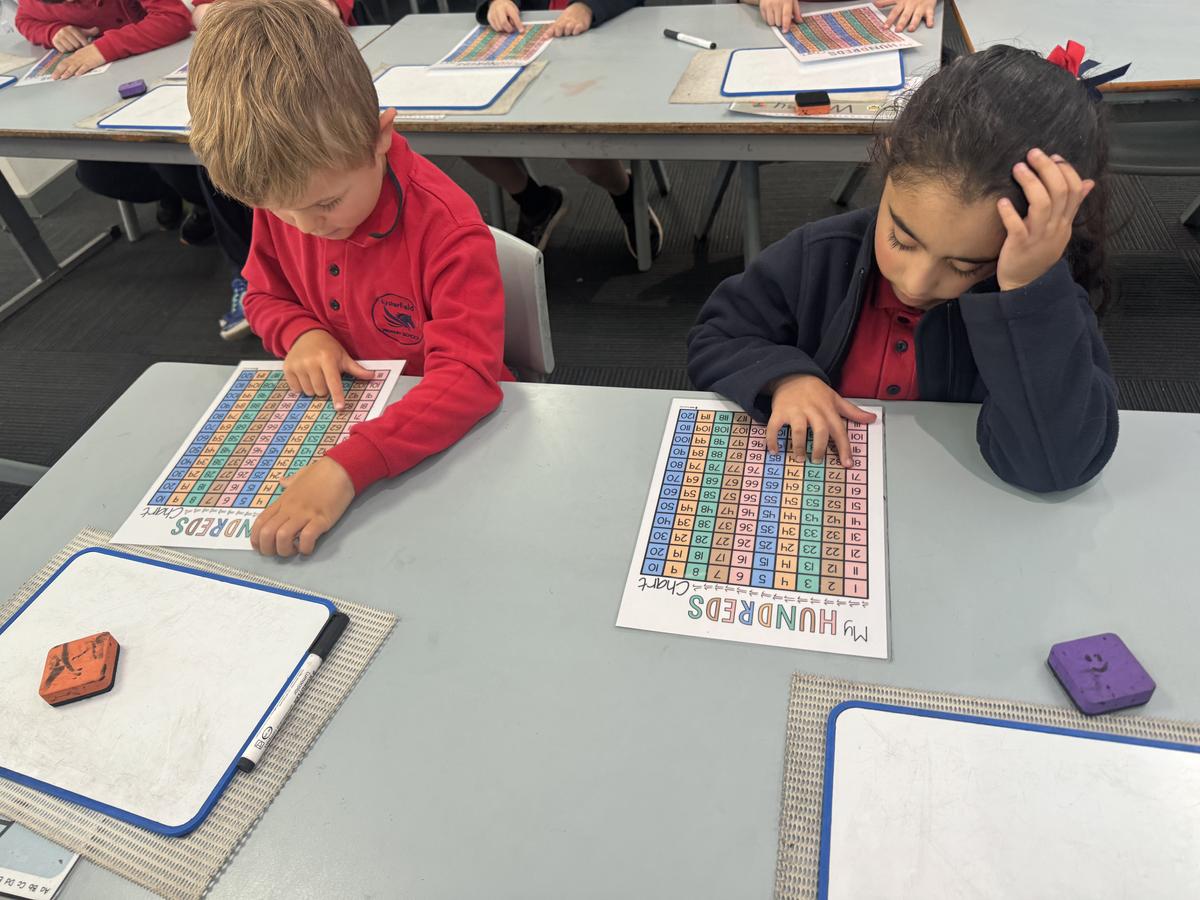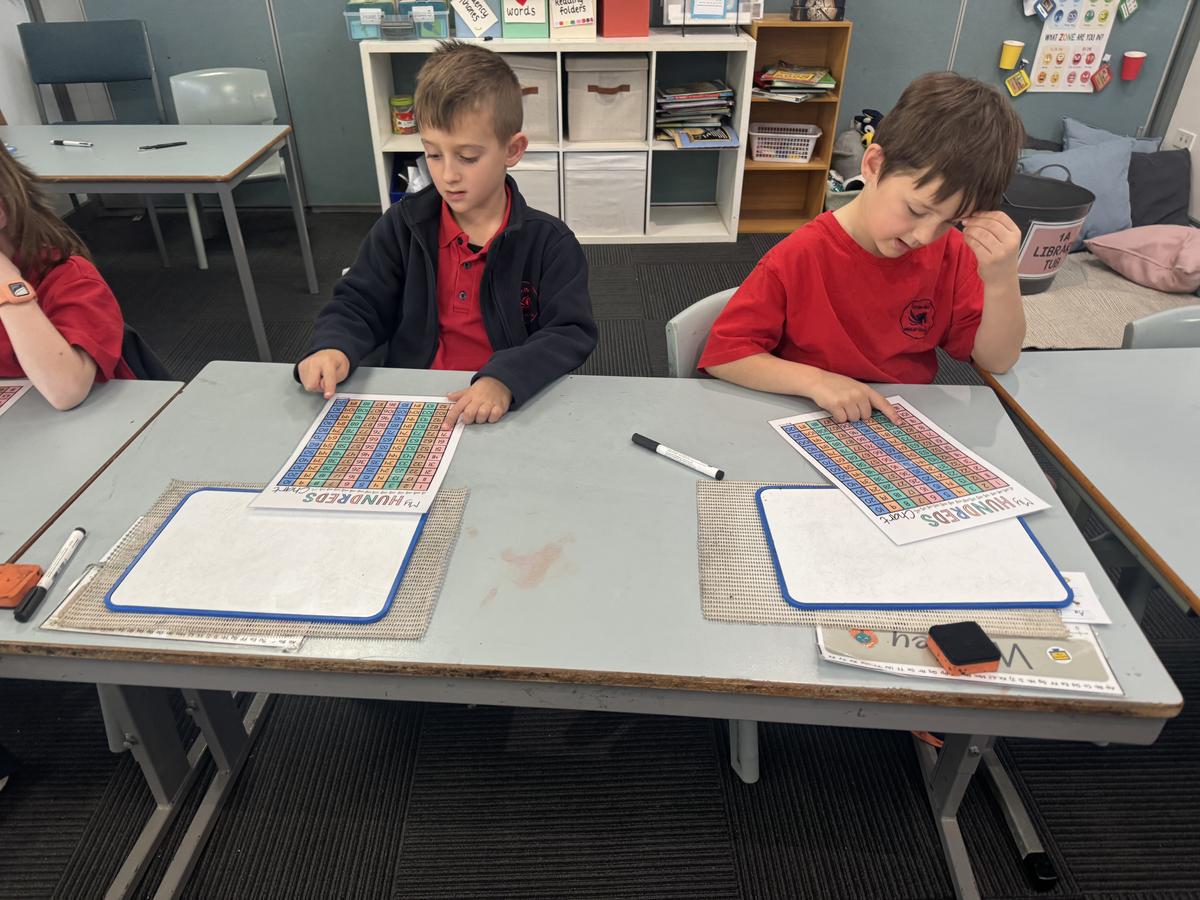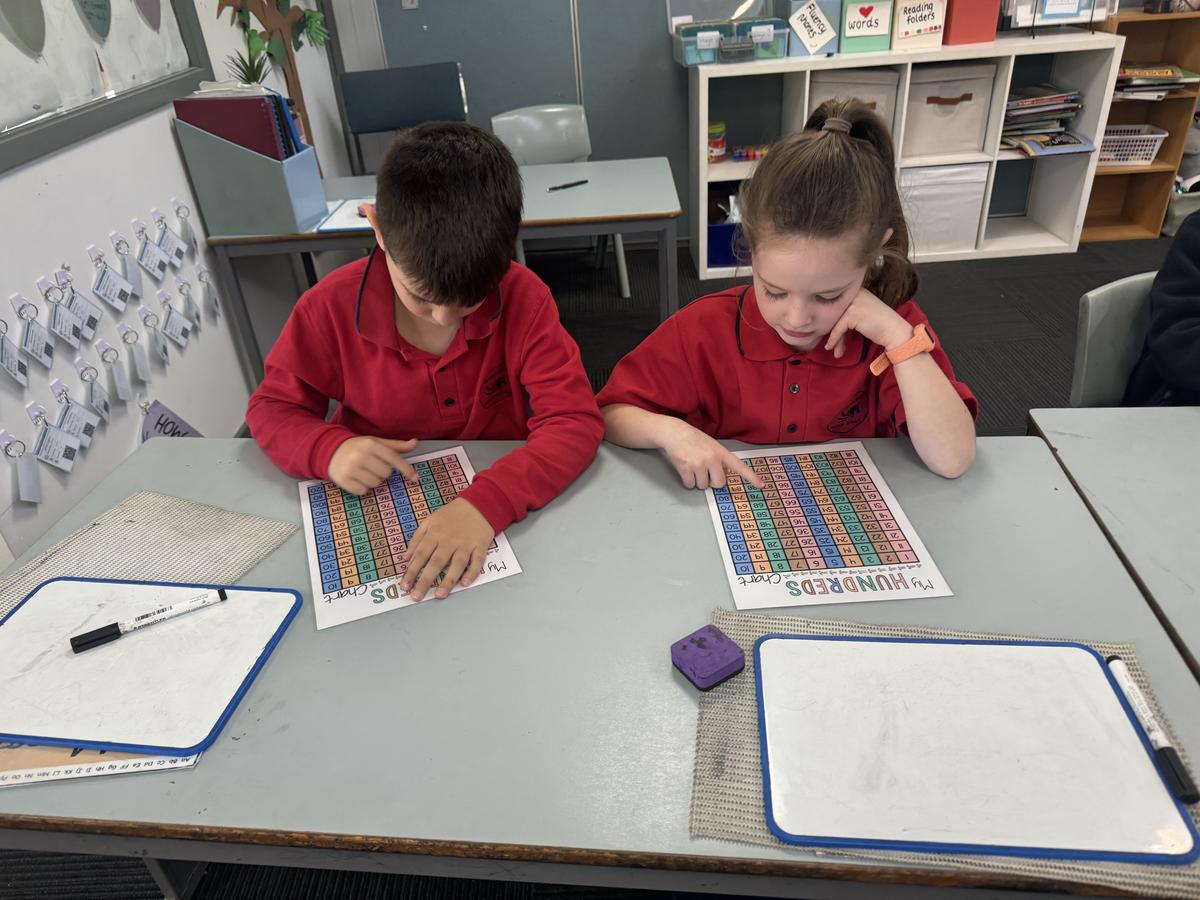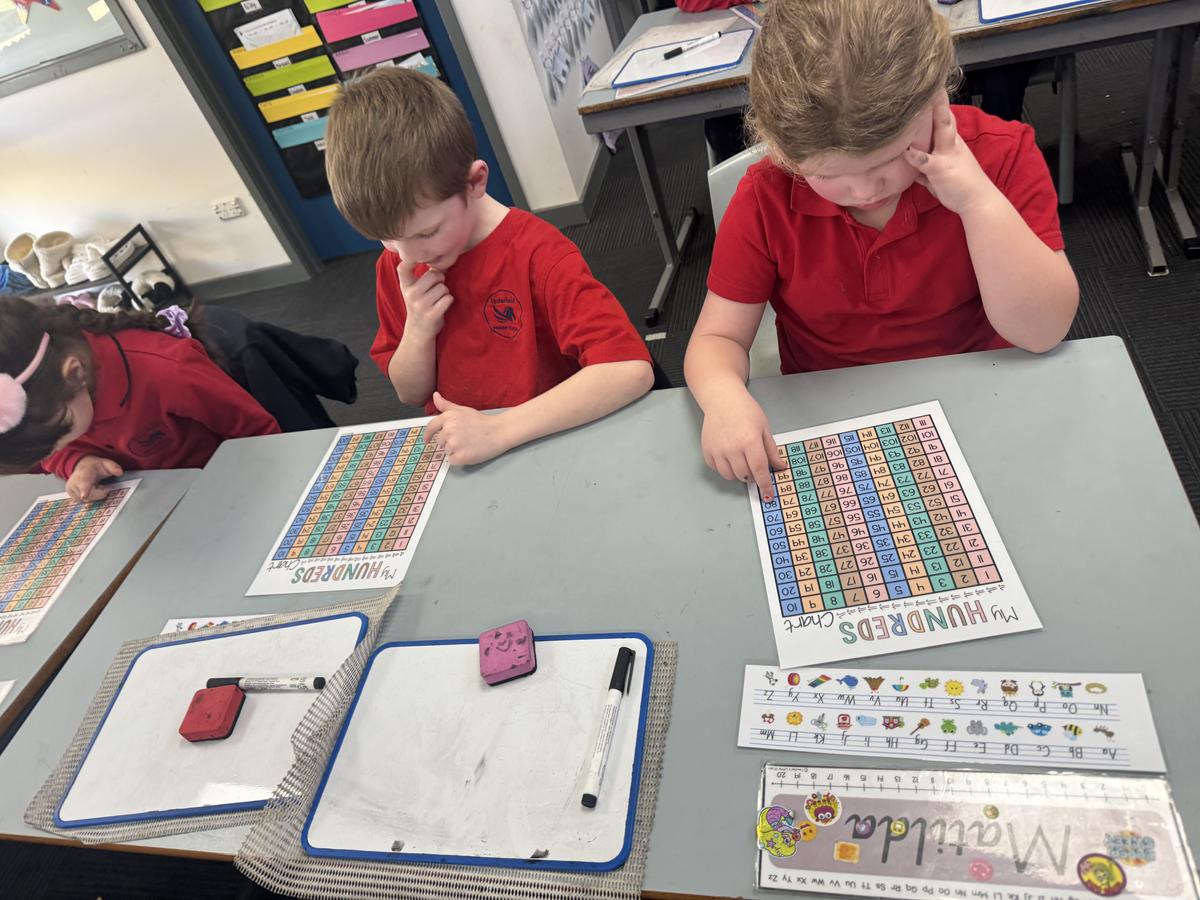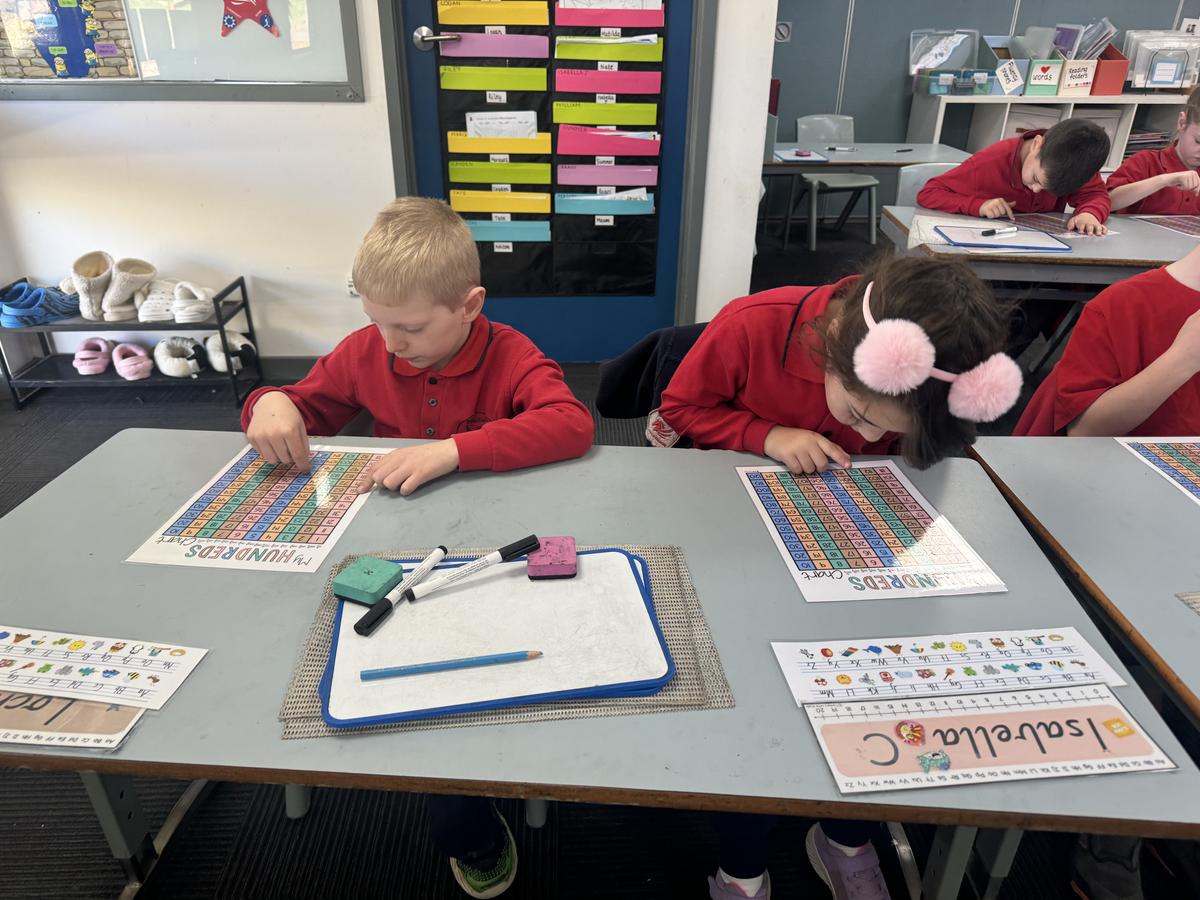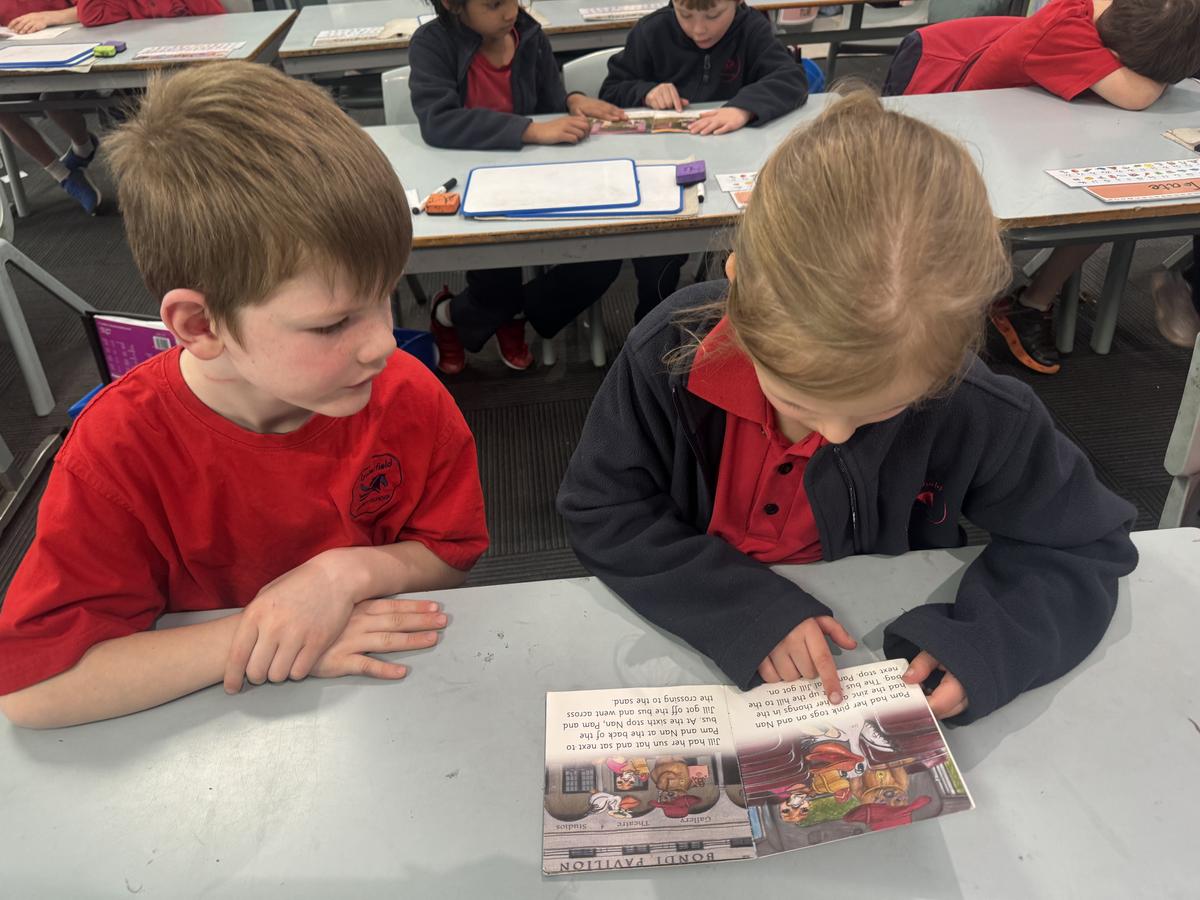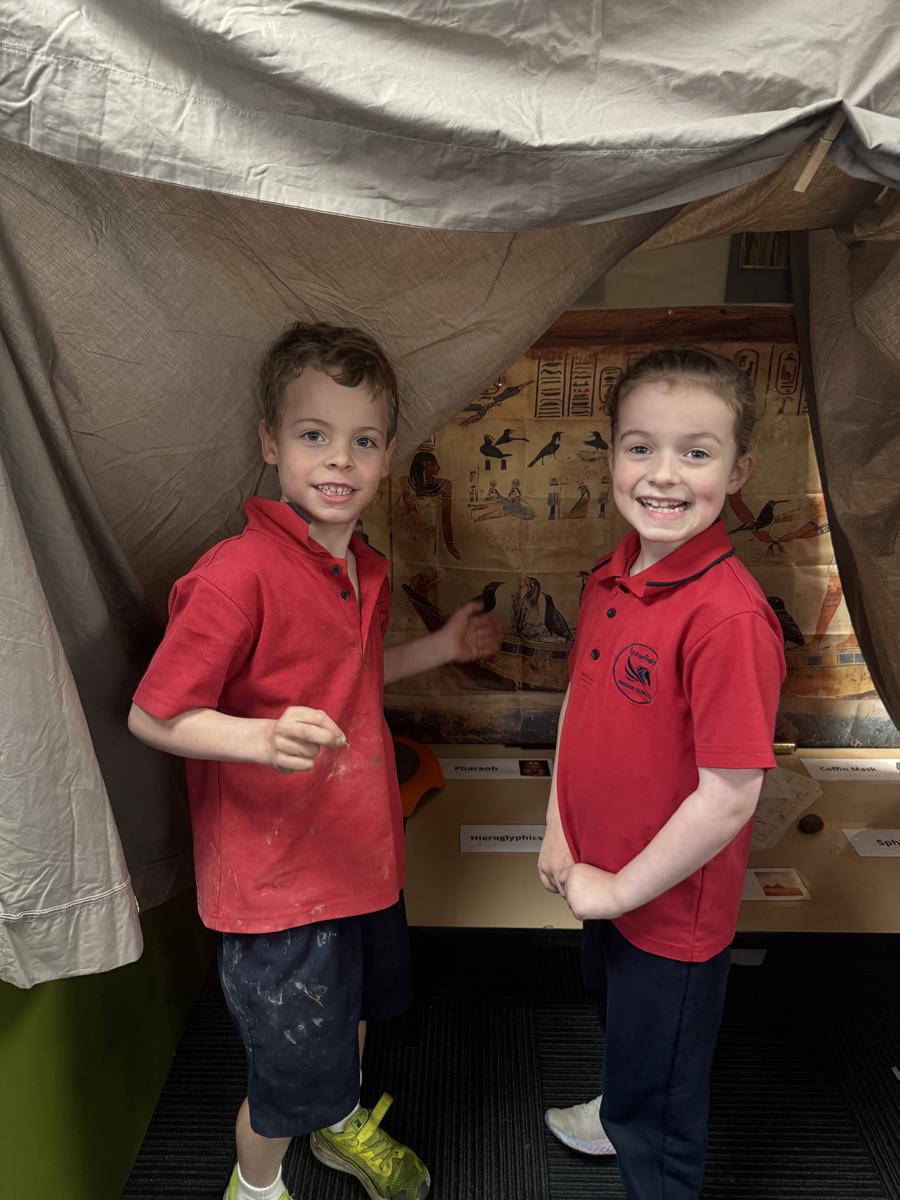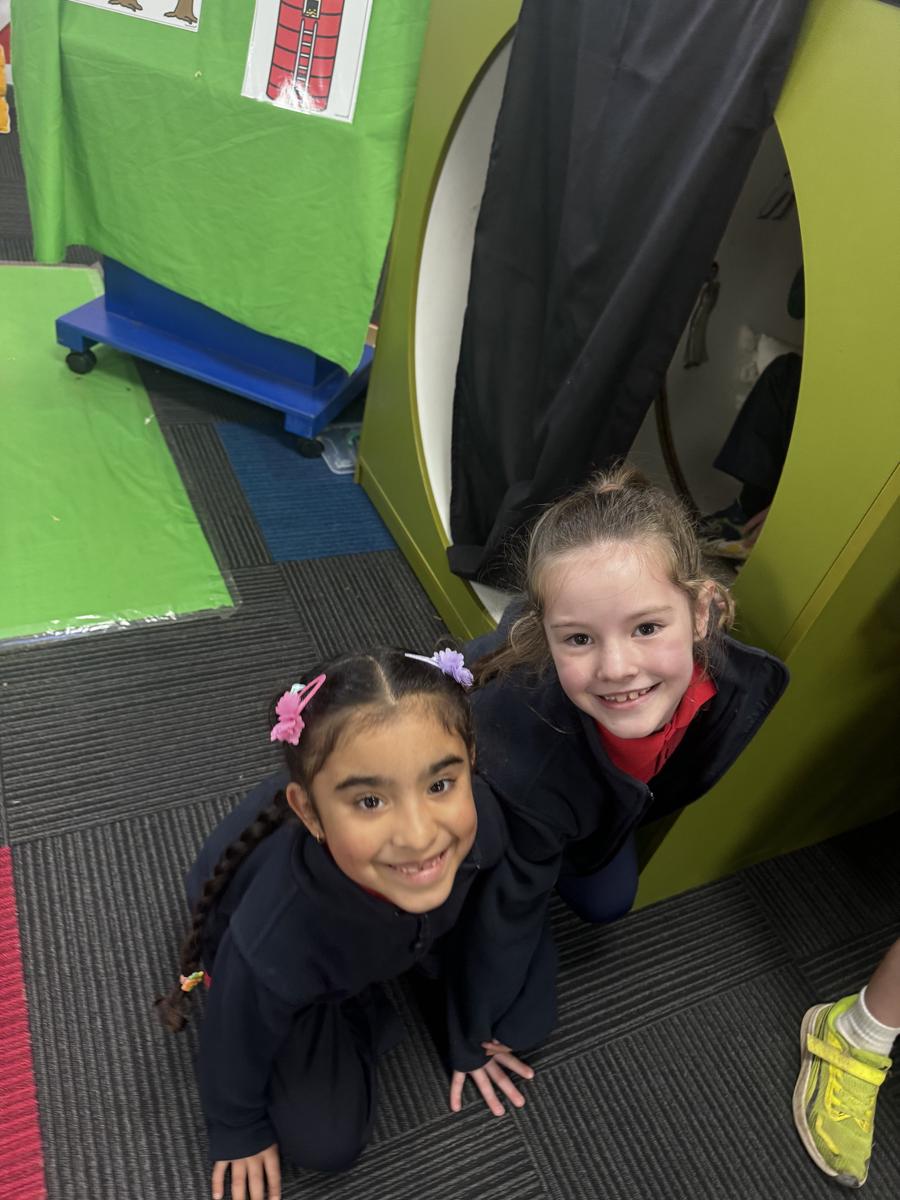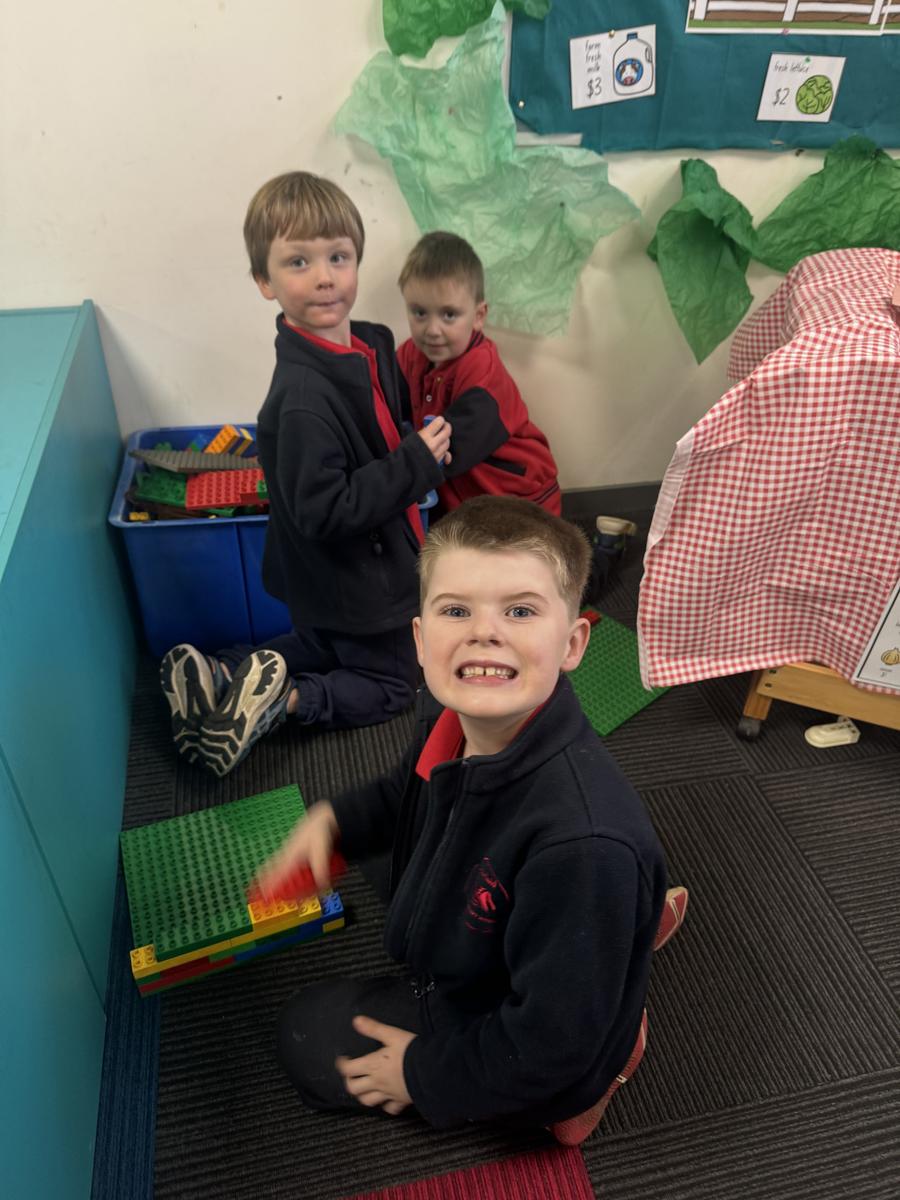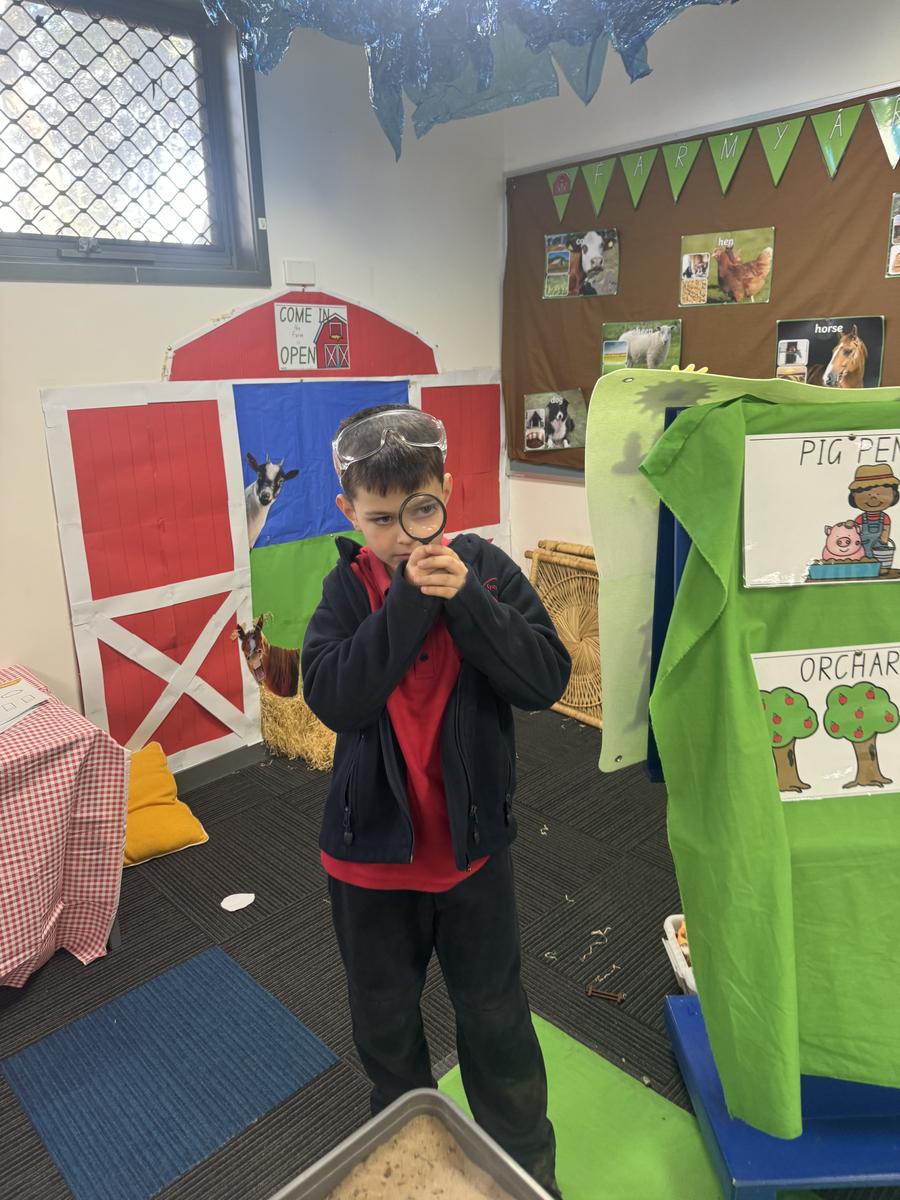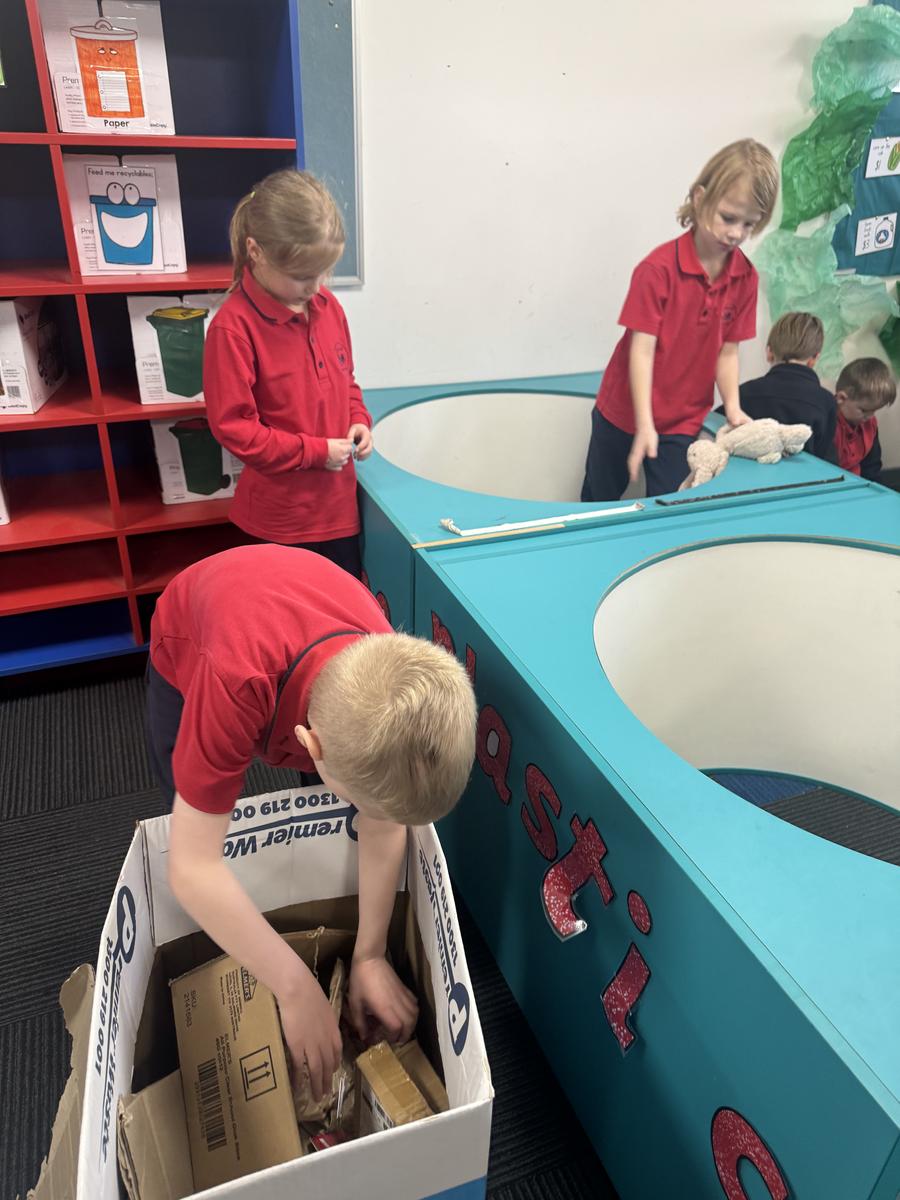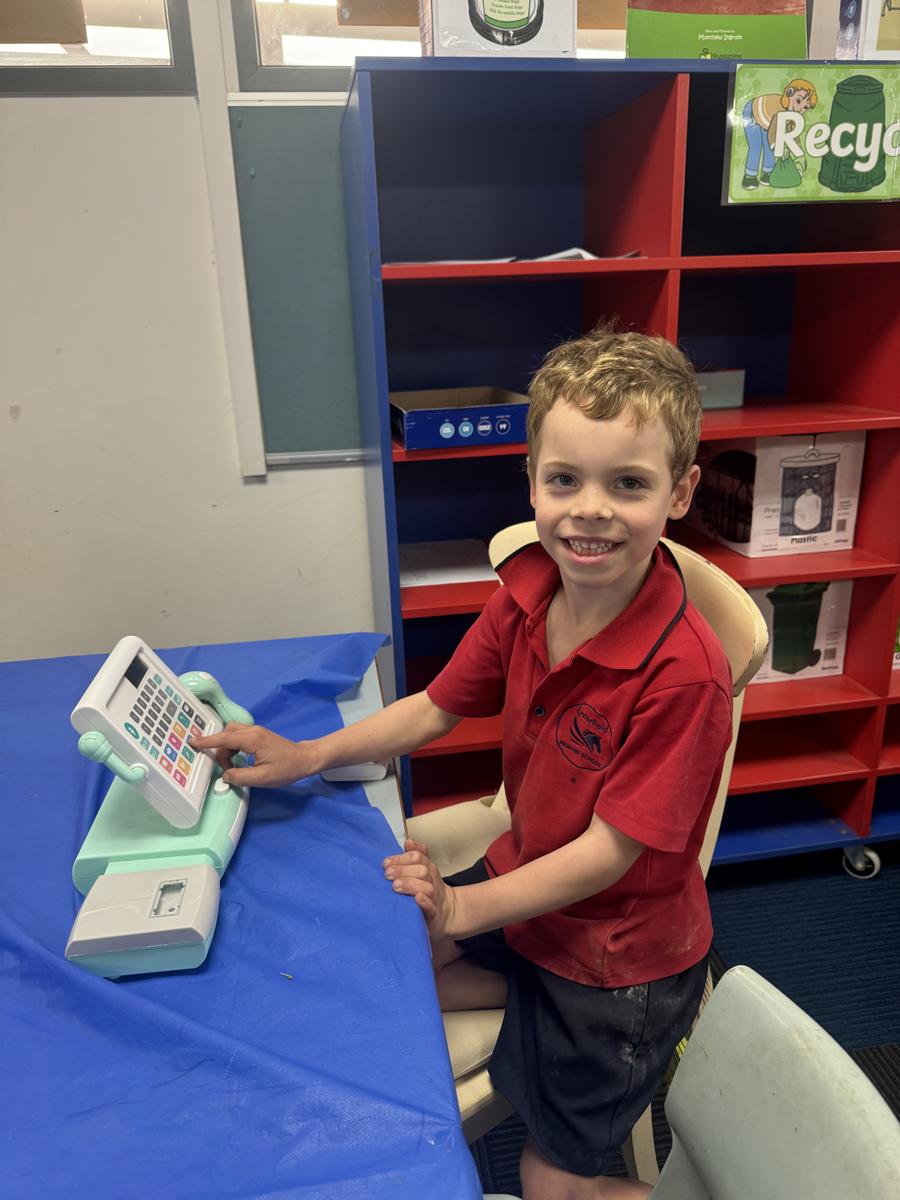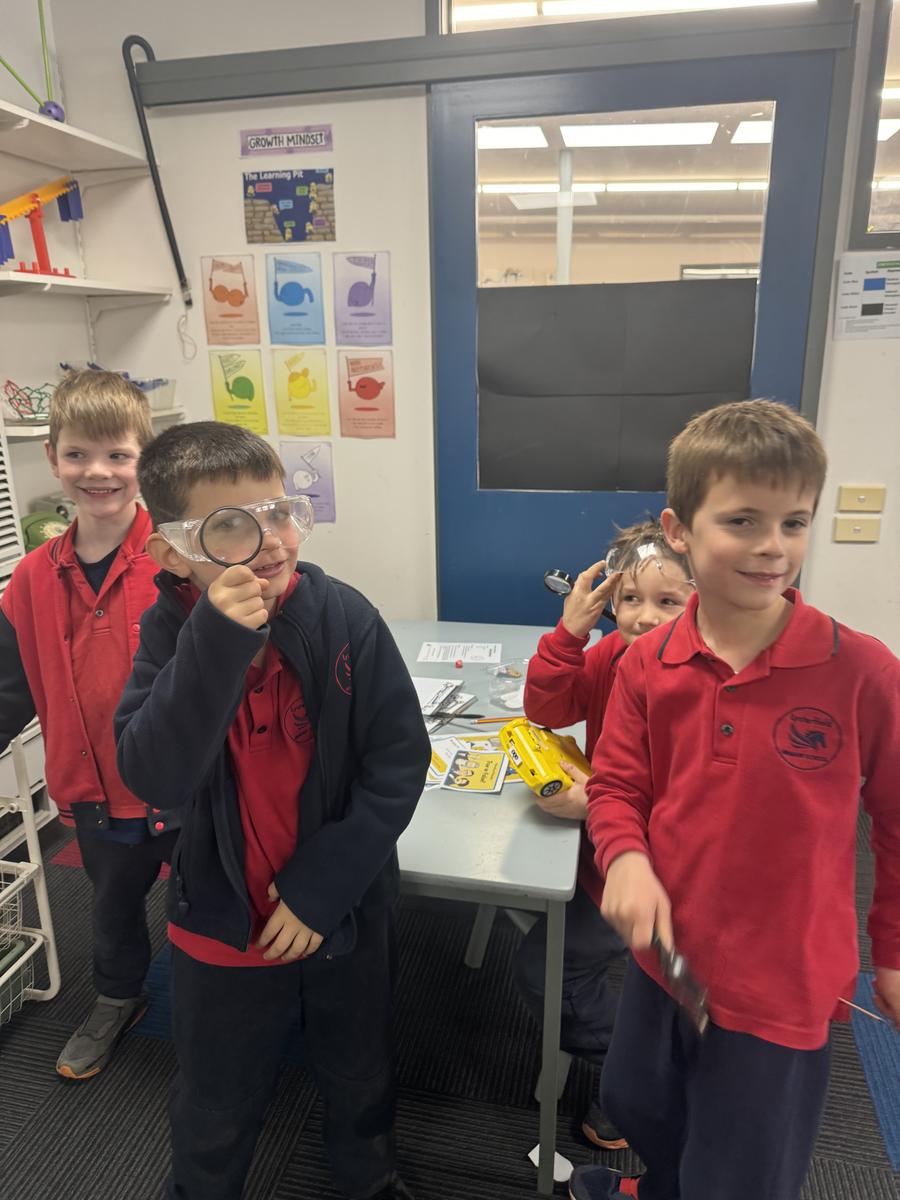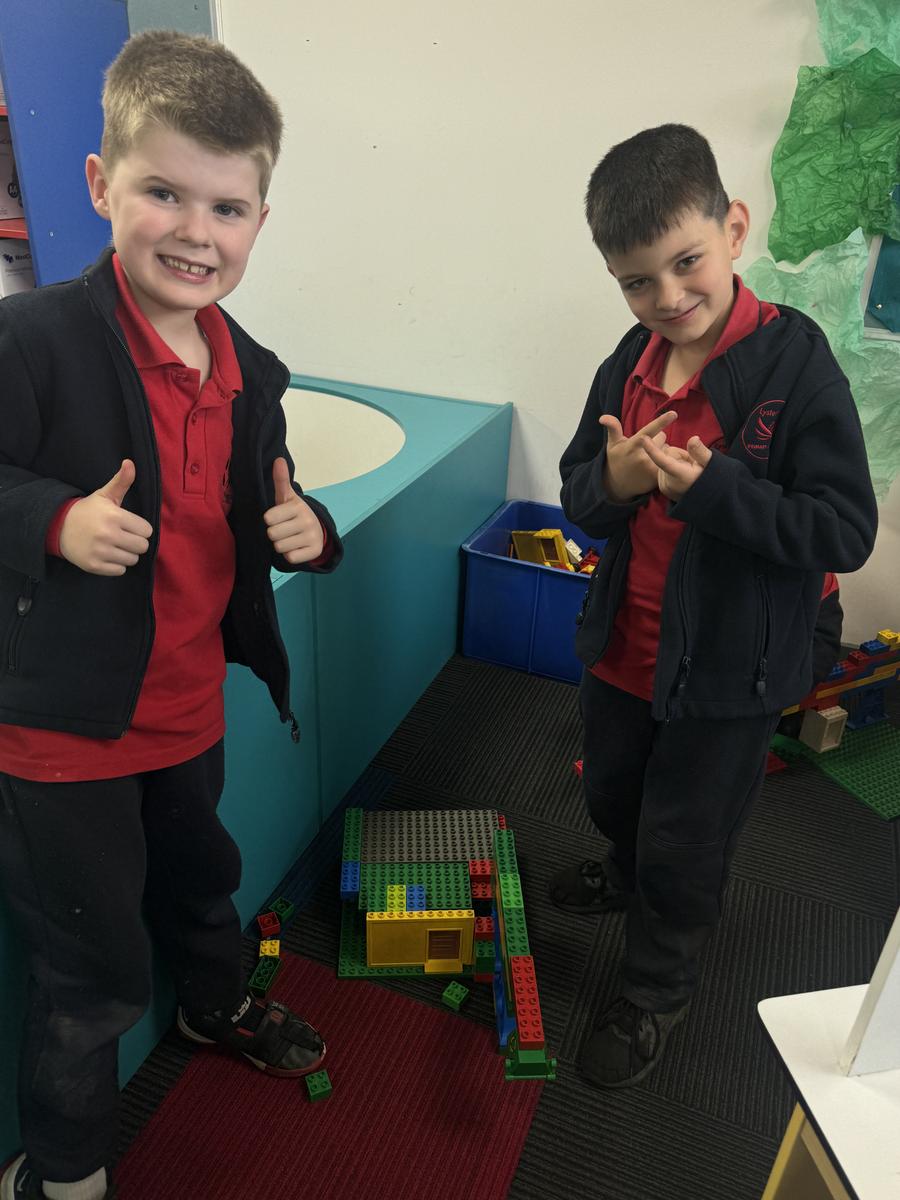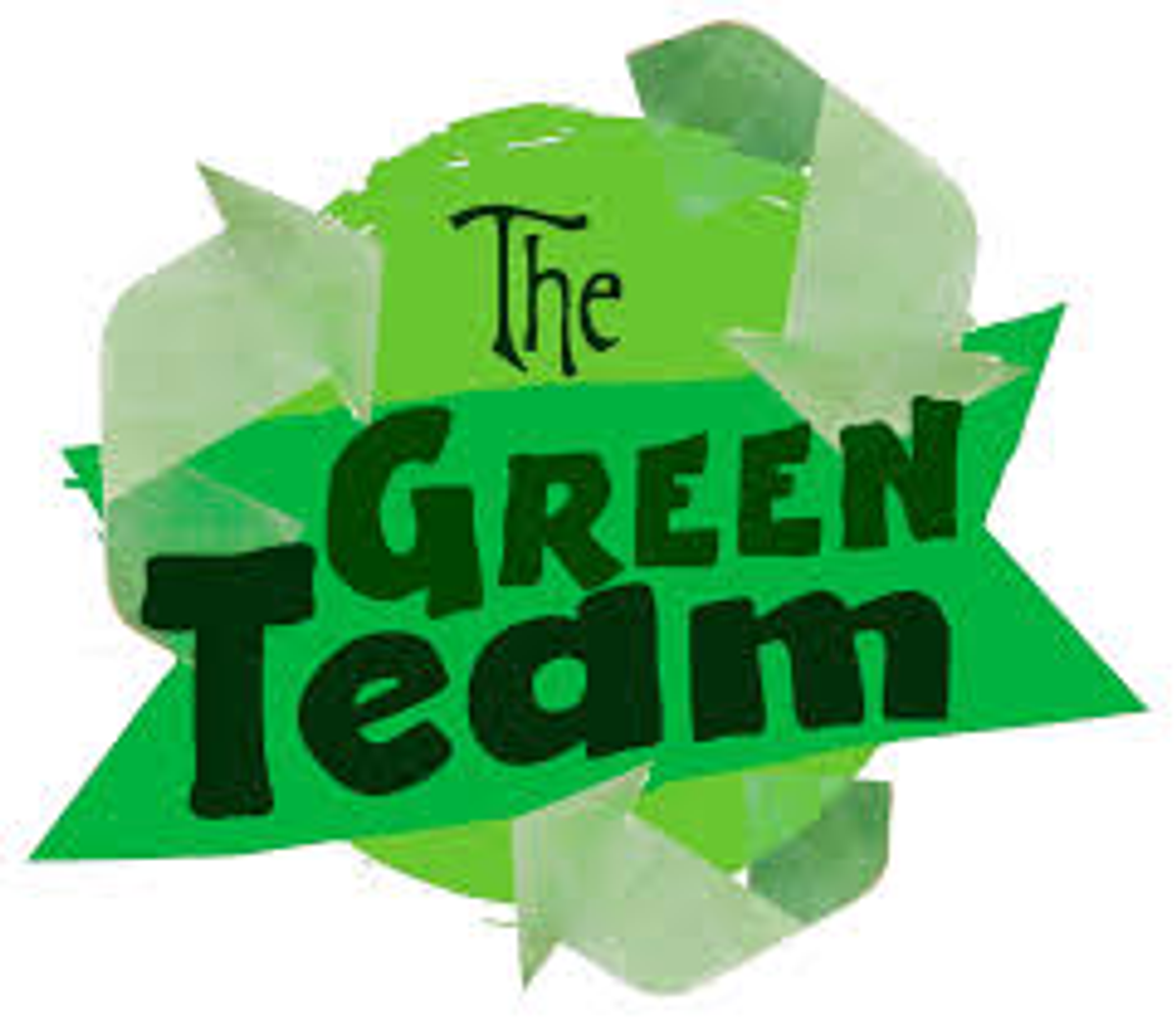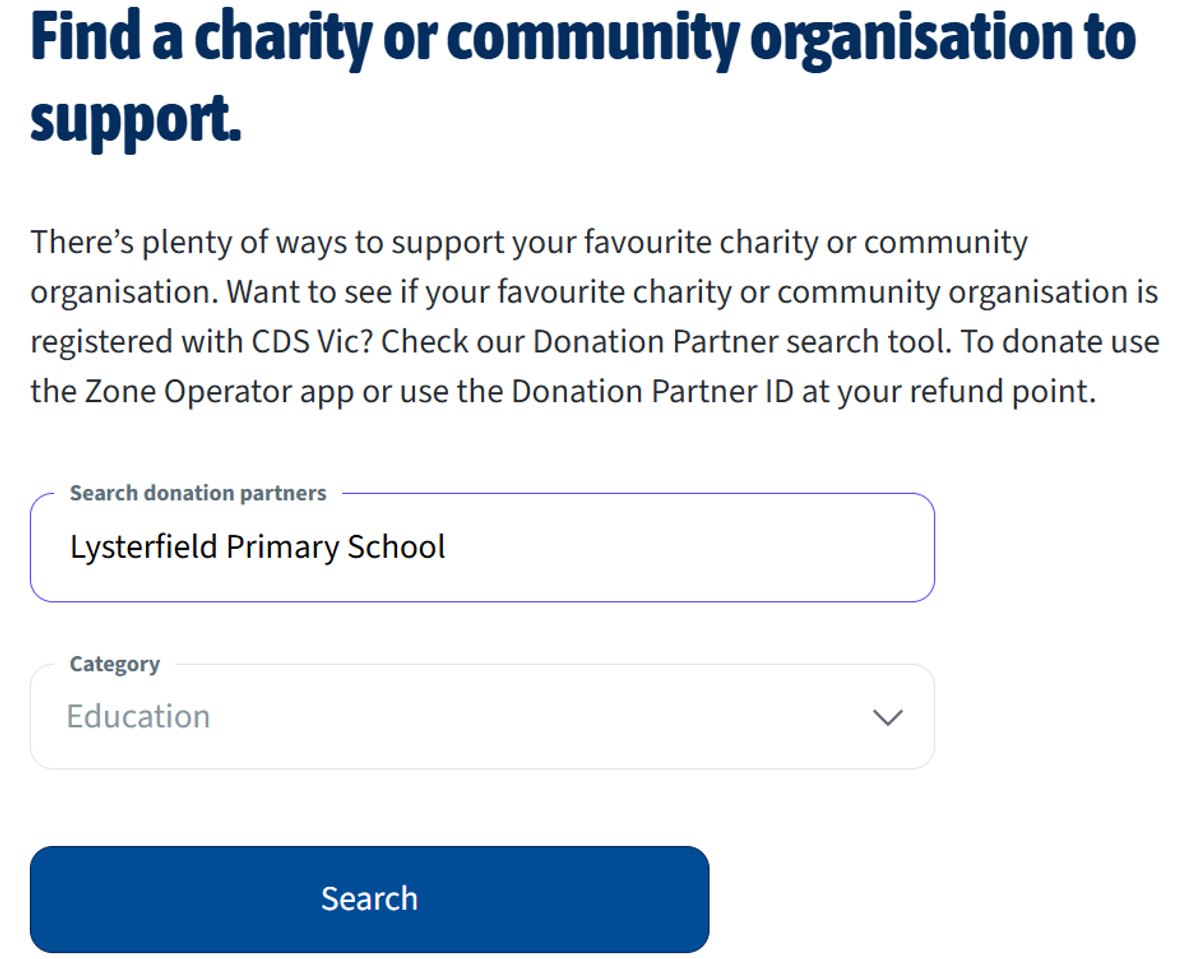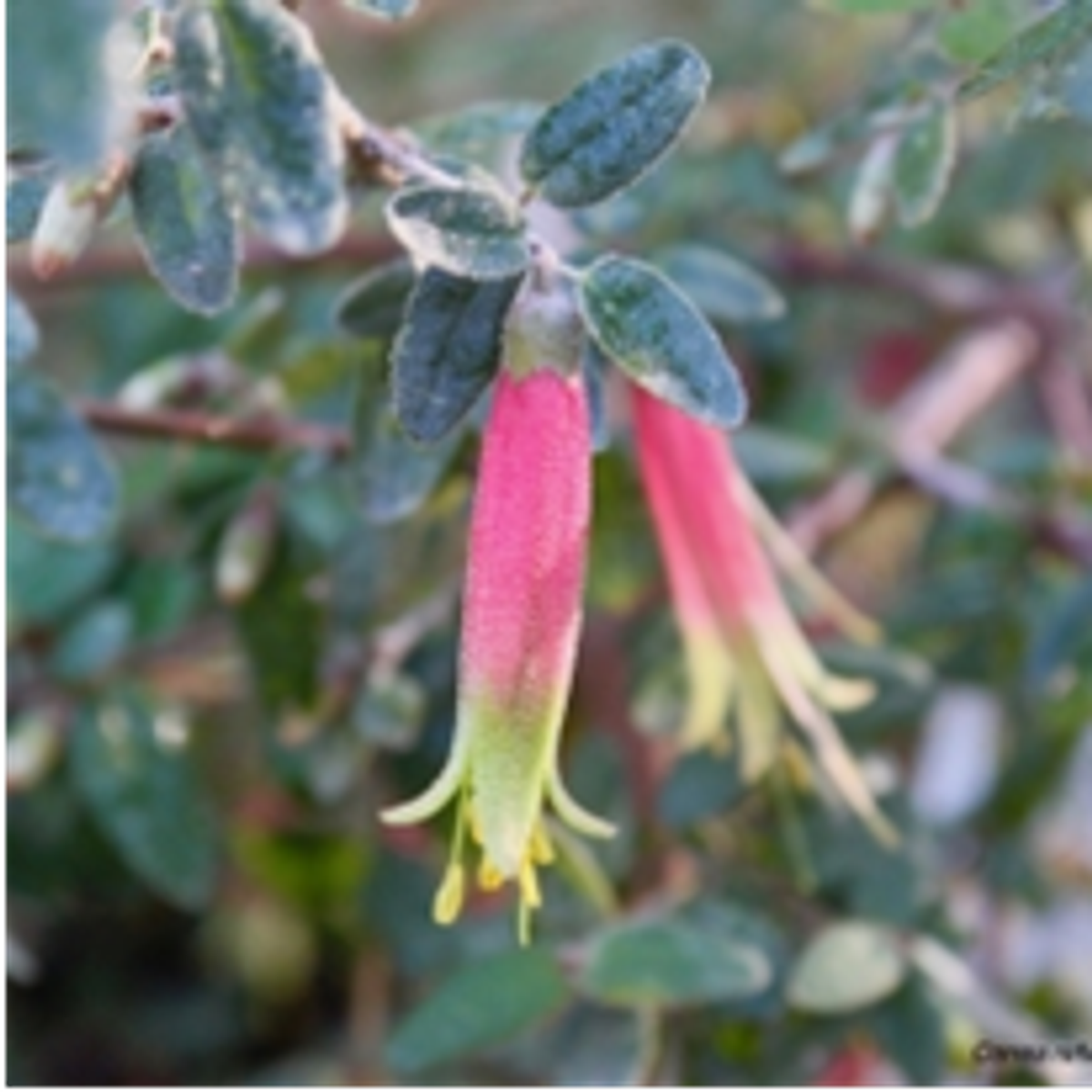Grade 1 News

📅 Important Dates & Reminders
All important dates and events are available on our Compass Calendar. Please check the calendar regularly to stay up to date.
Upcoming Dates and Key Information
🏊♂️ Thursday (W1-5) - Swimming program
Monday 18th August - Book Week Dress Up Day
Wednesday 27th August - Fathers Day Stall (Details to be confirmed)
Friday 22nd August - Whole School Production Rehearsal (School Gym)
Monday 1st September - Whole School Dress Rehearsal at Rowville Institution of Arts
Tuesday 2nd September - Music Production
Wednesday 3rd September - Music Production
Friday 19th September - Last Day of Term. Dismissal at 2.30pm.
Library
Please refer to the timetable below for your child’s library day. Ensure your child brings their library bag each week so they can borrow books.
Take-Home Folders
Please remember to send your child’s take-home folder to school every day.
Homework
For homework in Grade 1 the expectation is that students will read their take-home book to an adult each day. Every student will receive a new book from their classroom on a Monday. Students will need to return their previous book before receiving a new book.
Here are some optional activities:
Learning in Action
📖 Literacy
Term 3 will be an exciting term full of learning. Below is an overview of our Literacy focus areas. To kick off Term 3, students have been busy within the Literacy space.
Word Work
Students have been learning how to read and spell words and sentences that have compound words in them. For example; cupcake, fishnet, hotdog, sunrise. Additionally, they have been learning how to attach the suffix -ing to words to alter their meaning.
Preview for learning: Students will be learning how to read and spell words and sentences that have a Silent Final E. For example, ripe, cute and mate. Students will extend this learning by comparing ‘VCe’ and ‘VC’ words. For example ‘us’ and ‘use’, ‘rid’ and ‘ride’ and ‘mop’ and ‘mope’.
Sentence-Level Writing
Over the past two weeks, our writing lessons have focused on building students’ understanding of sentence structure by exploring different types of words. This helps students become more confident writers who can construct clear and meaningful sentences.
Identify and define common and proper nouns
Students learned that common nouns are general names for people, places, and things (e.g. girl, school, dog), while proper nouns name specific people, places, or things and always start with a capital letter (e.g. Lily, Melbourne, Luna Park). We practised sorting, identifying, and using both types of nouns in our writing.
Identify and define pronouns
Students also explored pronouns, words that take the place of nouns to avoid repetition (e.g. he, she, it, they). They learned when and how to use pronouns in a sentence and why they are useful in writing.
Through group discussions and writing activities, students have been practising using these different word types to build stronger, more varied sentences. It’s been great to see their confidence growing as they write with more purpose and precision!
Preview for learning: Over the next two weeks, our writing focus will be on strengthening students' sentence structure by learning how to combine two short sentences into one.
Handwriting
Students have now learnt all letters of the alphabet and will be revising each one multiple times throughout the term to improve their letter formation and overall quality of handwriting.
Here are some photos of our Grade 1's practising their Fluency Partner Reading
🌍 Knowledge-Rich Curriculum
Over the past few weeks, Grade 1 students explored and completed their Knowledge Rich unit on Taking Care of the Earth. See below for a summary of the learning that has taken place for our students.
Taking Care of the Earth
In our Grade 1 Knowledge Rich Unit on Taking Care of the Earth, students were introduced to the importance of our planet and our shared responsibility in caring for it. We began by exploring what the Earth is made of: land, water, and air, and why these elements are vital for all living things. Students investigated how rubbish affects the Earth, learning that when waste isn’t managed properly, it can pollute our land, water, and air. We explored the concept of natural resources, discussing how we use these resources in everyday life and why it's important to protect them.
The unit also focused on practical ways we can help care for our planet. Students learned how reducing, reusing, and recycling can help conserve our natural resources. We practised how to sort rubbish correctly and talked about why proper recycling matters. We also discovered what composting is, how to do it at school and home, and how it helps turn food waste into healthy soil. We explored the effects that different types of pollution have on plants, animals, and people. A special focus was given to air pollution and its harmful effects on our health and the environment. Students learned about the importance of clean water and how everyone needs it to survive. By the end of the unit, students could explain why the Earth is special and describe many ways they can help take care of it, showing a deepening sense of responsibility and care for the world around them.
Preview for learning: During our next Knowledge Rich unit, students will be exploring Ancient Egypt.
➗ Maths
Students began our Measurement of Time Unit by learning to sequence events throughout the day, using terms such as morning, afternoon, evening, and night. They identified daily activities and placed them in order, using pictures and drawings to show when these events typically occur. They then extended this understanding by exploring how to sequence events over longer periods, such as weeks, months, and years, by looking at changes like plant growth or growing from a baby to an adult.
Students also compared events based on how long they take, learning to describe the duration of familiar activities. They identified which events are short, such as washing hands, and which take longer, like sleeping or building a puzzle. They then ordered events from shortest to longest duration, using their reasoning to explain their choices.
We then began our new unit on patterns where students focused on identifying, continuing, and creating repeating patterns. They used classroom objects to explore a range of patterns, labelling the unit of repeat and explaining the rule behind each pattern. Students also created their own patterns and described the differences between the repeating elements.
To finish off the fortnight, students practised skip counting in 2s, 5s, and 10s. They used number tracks and hundred charts to identify number patterns, filled in missing values, and continued both increasing and decreasing sequences by finding the rule behind each pattern.
Preview for learning:
In the coming weeks, students will explore skip counting, patterns, and early division through hands-on activities. They’ll create and extend skip counting patterns in 2s, 5s, and 10s, and organise collections into equal groups to support quick counting. Students will also build and describe growing patterns that increase or decrease by a set amount using blocks.
As we begin our unit on sharing and grouping, students will practise fair sharing between two or three groups, link this to halving, and describe their work using sentence frames. They’ll also represent sharing through arrays, using rows and columns to show equal groups.
Wellbeing
This term, our wellbeing will be taught through the Resilience, Rights and Respectful Relationships program. Students have learnt about the following on positive coping this fortnight:
This first lesson helped students understand the difference between calming and cheering coping strategies. They explored these strategies by moving to calming or cheerful music and reflecting on how each type of music makes them feel. Students discuss situations when it’s helpful to use calming strategies (like when angry or scared) versus cheering strategies (like when lonely or bored). The lesson concluded with the class singing a cheerful song to practice cheering themselves up.
This second lesson helped students identify things that make them feel angry and practice strategies to manage their anger safely. Students discussed what anger feels like, shared triggers for anger, and distinguished between hurtful and helpful ways to express it. They then practised three calming techniques, balloon breathing, pressing hands together, and counting to ten, to find which works best for them. Finally, students reflected by drawing their angry face and a preferred coping strategy, emphasizing the importance of managing anger constructively.
Preview for learning: In the following fortnight, students will explore how everyone has different fears, reactions, and ways of coping with emotions. Through a fun movement game, they will discover that people have diverse likes and dislikes when it comes to managing their feelings. The lesson emphasizes the importance of respecting these differences and understanding what works best for each individual.
Curious Corner
From the Grade 1 teachers,
Ms Holmes, Miss Albanese, Mrs Reynolds and Mrs Ryan
Updates from around the school
Green Team News
Under the guidance of Mrs Stokol and Mrs Alexander, the Green Team met for the first time this week, and what a meeting it was! Across Years 3 to 5, we had nearly 50 excited and passionate students eager to do their part for the environment.
Whether it’s helping to keep the school free of rubbish, caring for and developing the gardens, or educating our community about sustainability, there was a real buzz in the air as students shared ideas and signed up for various roles.
A new initiative launched this term is the collection of 10c containers. Thanks to the special lunch day last term, we raised $21, a fantastic start! We’re now working to collect eligible containers daily to reduce landfill waste and turn recyclables into funds that will be reinvested into future Green Team projects.
Participation in the Green Team is inclusive and open to all. It’s not too late for your child to get involved; we’d love to have them on board!
Green Team Newsletter #2
The enthusiastic Green Team members from Years 3 to 6 continue to meet with Mrs Alexander and Mrs Stokol each Wednesday lunchtime. Meetings begin with a check-in on how the yard cleaning roster is going. Students report which areas are the cleanest, which need more attention, and share ideas for improvement.
Sustainability remains a key focus. Whether it’s managing waste, maintaining garden spaces, or spreading awareness, students have shown impressive initiative and creativity.
Our 10c container collection is going strong! We've raised over $30 in just a few weeks. Green Team members manage the collection bin outside the canteen on lunch order days, and also visit classrooms weekly to gather containers from specially labelled tubs. By collecting these items daily, we are preventing waste from going to landfill and turning it into cash to support our environmental efforts.
Be sure to check out the Sustainability Display in the gym over the coming weeks to see what we’ve been up to!
Did you know? You can support the Green Team by nominating Lysterfield Primary School (LPS) as your donation partner through Victoria’s Container Deposit Scheme.
Download the app or visit:🔗 Victoria's Container Deposit Scheme | Learn How To Donate
It’s planting season, and what’s better than free plants?
Help the Green Team — and Earn Free Plants!
Did you know that the Knox Environment Society (KES) offers free native plants as prizes through their Nature Discovery Passport program?
By playing an interactive game and collecting stamps at local reserves, participants can earn plant prizes, and what better way to use those plants than by donating them to our school for the Green Team to grow and maintain?
Explore one of the many beautiful reserves in Knox on the weekend, learn about your local ecology, collect stamps, and claim your prize. It’s a fun way to get outside, support the environment, and contribute to our school’s sustainability efforts.
And who says the fun is just for the kids? Families are welcome to join in too!
To learn more, visit:
🔗 Nature Discovery Passport – Knox Environment Society
🔗 Knox Environment Society Home Page
Thank you — every little bit helps!
Mrs Stokol and Mrs Alexander
